- Home
- Tim Lebbon
Naming of Parts
Naming of Parts Read online
Naming of Parts is copyright © 2000, Tim Lebbon, all rights reserved. No part of this book may be reproduced in any form, by any means electronic or mechanical, without prior permission of the publisher, with the exception of brief passages quoted in reviews.
ISBN: 1-931305-87-0
Scorpius Digital Publishing
PO Box 19423
Queen Anne Station
Seattle, WA 98109
http://www.scorpiusdigital.com
“A child grows up when he realises that he will die.”
— proverb
That night, something tried to break into the house. Jack heard the noises as he lay awake staring at the ceiling, attempting to see sense in the shadowy cracks that scarred the paintwork. The sounds were insistent and intelligent, and before long they were fingering not only at window latches and handles, but also at the doorways of his mind.
He liked listening to the night before he went to sleep, and out here in the country there was much to hear. Sometimes he was afraid, but then he would name all the different parts that went to make up that fear and it would go away. A sound I cannot identify. A shape I cannot see. Footsteps that may be human, but which are most likely animal. There’s nothing to be afraid of, there are no monsters. Dad and Mum both say so; there are no such things as monsters.
So he would lie there and listen to the hoots and rustles and groans and cries, content in the knowledge that there was nothing to fear. All the while the blankets would be his shield, the bedside light his protector, and the gentle grumble of the television from downstairs his guarantee.
But that night—the night all guarantees were voided—there were few noises beyond his bedroom window, and with less to hear, there was more to be afraid of. Against the silence every snapped twig sounded louder, each rustle of fur across masonry was singled out for particular attention by his galloping imagination. It meant that there was something out there to frighten everything else into muteness.
And then the careful caress of fingertips across cold glass.
Jack sat up in bed and held his breath. Weak moonlight filtered through the curtains, but other than that his room was filled with darkness. He clutched at his blankets to retain the heat. Something hooted in the distance, but the call was cut off sharply, leaving the following moments painfully empty.
Click click click. Fingernails picking at old, dried glazing putty, perhaps? It sounded like it was coming from outside and below, but it could just as easily have originated within his room, behind the flowing curtains, something frantically trying to get out rather than break in.
He tried naming his fears, this time unsuccessfully; he was not entirely sure what was scaring him.
A floorboard creaked on the landing, the one just outside the bathroom door. Three creaks down, three back up. Jack’s heart beat faster and louder and he let out a gasp, waiting for more movement, listening for the subtle scratch of fingernails at his bedroom door. He could not see the handle, it was too dark, it may even be turning now?
Another creak from outside, and then he heard his mother’s voice and his father hissing back at her.
“Dad!” Jack croaked. There were other sounds now: the soft thud of something tapping windows; a whispering sound, like a breeze flowing through the ivy on the side of the house, though the air was dead calm tonight.
“Dad!” He called louder this time, fear giving his voice a sharp edge to cut through the dark.
The door opened and a shadow entered, silhouetted against the landing light. It moved towards him, unseen feet creaking more boards. “It’s okay, son,” his father whispered, “just stay in bed. Mum will be in with you now. Won’t you, Janey?”
Jack’s mother edged into the room and crossed to the bed, cursing as she stumbled on something he’d left on the floor. There was always stuff on the floor in Jack’s room. His dad called it Jack debris.
“What’s going on, Dad?” he asked. “What’s outside?”
“There’s nothing outside,” his father said. His voice was a monotone that Jack recognised, the one he used to tell fatherly untruths. And then Jack noticed, for the first time, that he was carrying his shotgun.
“Dad?” Jack said uncertainly. Cool fingers seemed to touch his neck, and they were not his mother’s.
She hugged him to her. “Gray, you’re scaring him.”
“Janey?“
“Whatever…just be careful. Be calm.”
Jack did not understand any of this. His mother hugged him and in her warmth he found the familiar comfort, though tonight it felt like a lie. He did not want this comfort, this warmth, not when there was something outside trying to get in, not when his father stood in his pyjamas, shotgun closed and aimed at the wall, not broken open over his elbow as he carried it in the woods.
The woods. Thinking of them aimed Jack’s attention, and he finally noticed just how utterly silent it was out there. No voices or night-calls, true, but no trees swishing and swaying in sleep, no sounds of life, no hint of anything existing beyond the house at all.
His father moved to the window and reached out for the curtains. Jack knew what he would find when he pulled them back—nothing. Blankness, void, or infinity…and infinity scared Jack more than anything. How could something go on forever? What was there after it ended? Occasionally he thought he had some bright idea, but then sleep would come and steal it away by morning.
“Dad, don’t, there’s nothing out there!” he said, his voice betraying barely controlled panic.
“Shhh, shhh,” his mother said, rocking him.
“I know,” his father said without turning to offer him a smile. He grabbed a curtain and drew it aside.
Moonlight. The smell of night, a spicy dampness that seemed always to hide from the sun. And the noises again, tapping and scraping, tapping and scraping.
“Mum, don’t let Dad open the window,” Jack said, but his mother ignored him because she was hugging him, and that was usually enough. He would forget his bad dreams and go back to sleep, Mum would smile at the foolishness he’d spouted, but didn’t she know? Didn’t she see that they were all awake, and that what he was thinking was not foolishness because his dad really was standing in his room with a shotgun, opening the window, leaning out now, aiming the weapon before him like a torch—
There was an explosion. Like an unexpected scream in the depths of night it tore through Jack’s nerves, shred his childish sense of valour and set him screaming and squirming in his mother’s lap. Her arms tightened around him and she screamed too, he could smell the sudden tang of her fear, could feel the dampness between her breasts as he pressed his face to her chest.
“Gray, what the fuck—”
Her words shocked Jack but he could not lift his face to see.
“What the hell? What are you doing, what are you shooting at?”
Somewhere in the blind confusion his father came across and offered soothing words, but they were edged with his own brand of fear. Jack could not see him but he could imagine him standing there in silence, staring at a wall and avoiding his mother’s eyes. It was his way of thinking about what to say next.
He said nothing. Instead, Jack felt his dad’s strong hands under his arms, lifting him up out of the warmth of his mother’s fear and letting the dark kiss his sweaty skin cool.
“Dad,” Jack sobbed, “I’m scared!”
His dad rocked him back and forth and whispered into his ear, but Jack could barely hear what he was saying. Instead he tried to do what he had once been told, name the parts of his fear in an attempt to identify them and set them open to view, to consideration, to understanding.
Something, outside in the dark. Dad, he saw it and shot it. The sounds, they’ve gone, no more picking, no more prodding at
our house. Monsters, there are none of course. But if there are…Dad scared them off.
“Gray,” his mother said, and Jack looked up sharply.
“They weren’t monsters, were they Dad?” His father did not say a word. He was shaking.
“Gray,” his mum said again, standing and wrapping them both in her arms. “We should try the police again.”
“You know the phone’s dodgy, Janey.”
“You shot at someone. We should try the police.”
“Someone? But you saw, you—”
“Someone,” Jack’s Mum whispered softly. “Robbers, I expect, come to steal our Jackie’s things.” She ruffled his hair but Jack could not find a smile to give her.
“I heard them picking at the putty,” he said. “Robbers would just smash the window. Least, they do in The Bill. And there’s nothing else making a noise, like the fox in the woods. I always hear the fox before I go to sleep, but I haven’t heard it tonight. Dad!”
His father turned and stared at him, his face unreadable.
“Did you shoot someone, Dad?”
His father shook his head. He began to smile as he pulled Jack’s face into his neck, but the expression was grotesque, like one of those old gargoyles Jack had seen on churches when they were in France last year. “Of course not, Jack. I fired into the air.”
But he had not fired into the air, Jack knew. He had leaned out and aimed down. Jack could not help but imagine something squirming on the ground even now, its blood running into the gravel alongside the house, screams of pain impossible because it had no jaw left to open?
“Come on,” his dad said, “our room for now, son.”
“Didn’t you try the mobile?” Jack asked suddenly, but the look on his mother’s face made him wish he hadn’t.
“That’s not working at all.”
“I expect the batteries have run out,” he said wisely.
“I expect.”
His father carried him across the creaking landing and into their bedroom, a place of comfort. He dropped him gently onto the bed, and as he stood the telephone on the bedside table rang.
“I’ll get it!” Jack shouted, leaping across the bed.
“Son?“
He answered in the polite manner he had been taught: “Hello, Jack Haines, how may I help you?” It’s the middle of the night, he thought. Who rings in the middle of the night? What am I going to hear? Do I really want to hear it, whatever it is?
“Hey, Jackie,” a voice said, masked with crackles and pauses and strange, electronic groans. “Jackie…the town…dangerous…get to Tewton…Jackie? Jackie? Ja…?”
“Mandy,” he said, talking both to her and his parents. “It’s Mandy!”
His mother took the receiver from his hand. “Mandy? You there?” She held it to her ear for a few seconds, then glanced at Jack. “No one there,” she said. “Line’s dead. It did that earlier.” She turned to his dad and offered the receiver, but he moved to the window and shaded his eyes so he could see out.
“She said we should go to Tewton,” Jack said, trying to recall her exact words, afraid that if he did he would also remember the strange way she had spoken. Mandy never called him Jackie. “She said it was safe there.”
“It’s safe here,” his dad said without turning around. He was holding the shotgun again and Jack wanted to believe him, wanted to feel secure.
His mum stood and moved to the window. “What’s that?” Jack heard her mutter.
“Fire.”
“A fire?”
His father turned and tried to smile, but it seemed to hurt. “A bonfire,” he said, “over on the other side of the valley.”
“At night? A bonfire in the middle of the night?” Jack asked.
His parents said nothing. His mother came back to the bed and held him, and his father remained at the window.
“It was Mandy,” Jack said.
His mother shrugged. “I didn’t hear anyone.”
He tried to move away from her but she held him tight, and he thought it was for her own comfort as much as his. He didn’t like how his mum and dad sometimes talked about Mandy. He liked even less the way they often seemed to forget about her. He was old enough to know some stuff had happened—he could remember the shouting, the screaming, the punching on the last day Mandy had been with them—but he was not really old enough to realise exactly what.
It was so quiet, Jack could hear his father’s throat clicking as he breathed.
They stayed that way until morning.
“There are secrets in the night,” Mandy once told him. She was sitting next to his bed, looking after him because he’d been lost in the woods. He usually liked it when Mandy talked to him, told him things, but today even she could not cheer him up. She and his parents were hardly speaking, and when they did it was to exchange nothing but nastiness.
“What do you mean?”
She smiled. “You know, Jack. Secrets. You lie awake sometimes, listening for them. Don’t you? I know I do.”
“I just like listening,” he said, but he guessed she was right. He guessed there was more going on than most people knew, and he wanted to find out what.
“If you find a secret, sometimes it’s best to keep it to yourself. Not to tell Mum and Dad.”
Jack was subtly shocked at her words. Why keep something from Mum and Dad? Wasn’t that lying? But Mandy answered for him.
“Sometimes, grown-ups don’t understand their kid’s secret. And I’ll tell you one now.”
He sat up in bed, all wide-eyed and snotty-nosed. He wondered why Mandy was crying.
“I’m leaving home. At the weekend. Going to live in Tewton. But Jack, please, don’t tell Mum and Dad until I’m gone.”
Jack blinked as tears stung his eyes. Mandy hugged him and kissed his cheeks.
He didn’t want his sister to go. But he listened to what she said, and he did not tell their parents the secret.
Three days later, Mandy left home.
In the morning Jack went to fetch the milk, but the milkman hadn’t been. His father appeared behind him in the doorway, scowling out at the sunlight and the dew steaming slowly from the ground, hands resting lightly on his son’s shoulders.
Something had been playing on Jack’s mind all night, ever since it happened. An image had seeded there, grown and expanded and, in the silence of his parent’s bedroom where none of them had slept, it had blossomed into an all-too-plausible truth. Now, with morning providing an air of normality—though it remained quieter than usual, and stiller—he was certain of what he would find. He did not want to find it, that was for sure, yet he had to see.
He darted away from the back door and was already at the corner of the house before his dad called after him. The shout almost stopped him in his tracks because there was an unbridled panic there, a desperation…but then he was looking around the side of the cottage at something he had least expected.
There was no body, no blood, no disturbed flower-bed where someone had thrashed around in pain. He crunched along the gravel path, his father with him now, standing guard above and behind.
“You didn’t shoot anyone,” Jack said, and the sense of relief was vast.
Then he saw the rosebush.
The petals had been stripped, and they lay scattered on the ground alongside other things. There were bits of clothing there, and grimy white shards of harder stuff, and clumps of something else. There was also a watch.
“Dad, whose watch is that?” Jack could not figure out what he was seeing. If that was bone, where was the blood? Why was there a watch lying in their garden, its face shattered, hands frozen at some cataclysmic hour? And those dried things, tattered and ragged around the edges, like shrivelled steak …
“Gray!” his mother called from the back door, “where are you? Gray! There’s someone coming down the hill.”
“Come on,” Jack’s dad said, grabbing his arm and pulling him to the back door.
Jack twisted around to stare up the hi
llside, trying to see who his mother was talking about, wondering whether it was the Judes from Berry Hill Farm. He liked Mr Jude, he had a huge Mexican moustache and he did a great impression of a bandito.
“We should stay in the house,” his mum said as they reached the back door. “There’s nothing on the radio.”
If there’s nothing on the radio, what is there to be worried about? Jack wondered.
“Nothing at all?” his dad said quietly.
His mother shook her head, and suddenly she looked older and greyer than Jack had ever noticed. It shocked him, frightened him. Death was something he sometimes thought about on the darkest of nights, but his mother’s death…its possibility was unbearable, and it made him feel black and unreal and sick inside.
“I thought there may be some news …”
And then Jack realised what his mum had really meant…no radio, no radio at all…and he saw three people clambering over a fence higher up the hill.
“Look!” he shouted. “Is that Mr Jude?”
His father darted into the cottage and emerged seconds later with the shotgun—locked and held ready in both hands—and a pair of binoculars hanging around his neck. He handed his mother the shotgun and she held it as if it were a living snake. Then he lifted the binoculars to his eyes and froze, standing there for a full thirty seconds while Jack squinted and tried to see what his dad was seeing. He pretended he had a bionic eye, but it didn’t do any good.
His dad lowered the glasses, and slowly and carefully took the gun from his wife.
“Oh no,” she said, “oh no, Gray, no, no, no …”
“They did warn us,” he murmured.
“But why the Jude’s? Why not us as well?” his mum whispered.
Jack’s father looked down at him, and suddenly Jack was very afraid. “What, dad?”
“We’ll be leaving now, son,” he said. “Go down to the car with your mum, there’s a good boy.”
“Can I take my books?”
“No, we can’t take anything. We have to go now, because Mr Jude’s coming.”

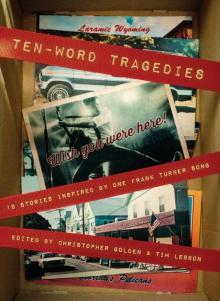 Ten-Word Tragedies
Ten-Word Tragedies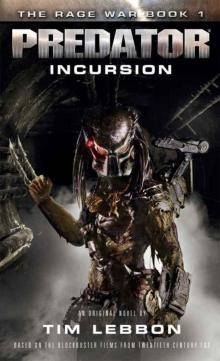 Predator: Incursion
Predator: Incursion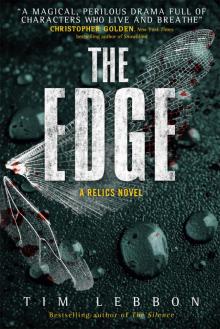 Relics--The Edge
Relics--The Edge Firefly
Firefly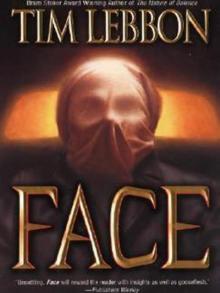 Face
Face Generations
Generations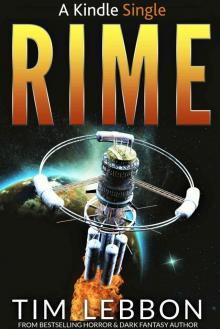 RIME (Kindle Single)
RIME (Kindle Single) Fallen
Fallen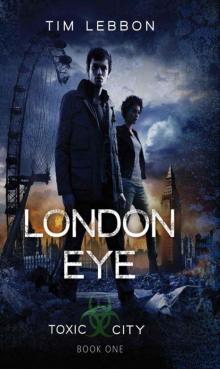 London Eye tc-1
London Eye tc-1 Kong: Skull Island
Kong: Skull Island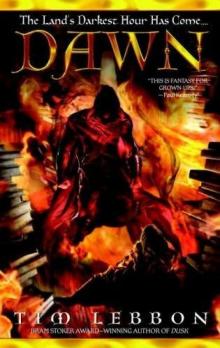 Dawn n-2
Dawn n-2 Into the Void: Star Wars (Dawn of the Jedi)
Into the Void: Star Wars (Dawn of the Jedi)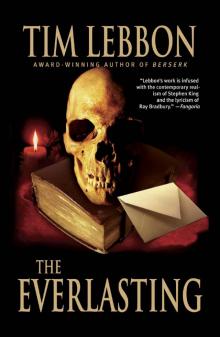 The Everlasting
The Everlasting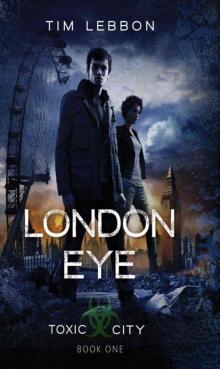 London Eye: 1 (Toxic City)
London Eye: 1 (Toxic City)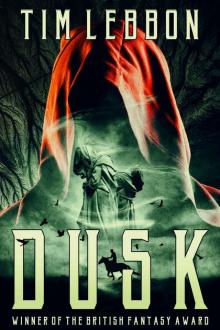 Dusk: a dark fantasy novel (A Noreela novel)
Dusk: a dark fantasy novel (A Noreela novel)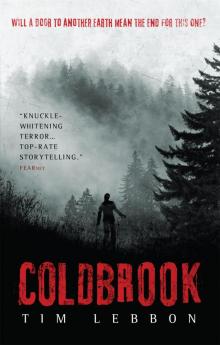 Coldbrook
Coldbrook Alien
Alien Dusk
Dusk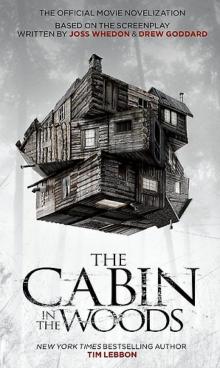 The Cabin in the Woods
The Cabin in the Woods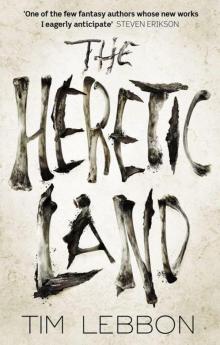 The Heretic Land
The Heretic Land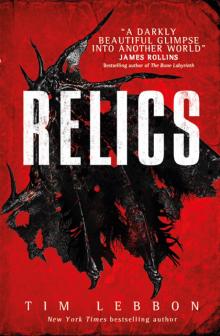 Relics
Relics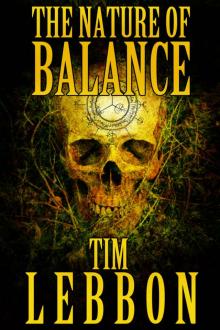 The Nature of Balance
The Nature of Balance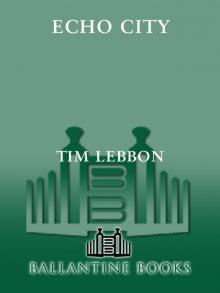 Echo City
Echo City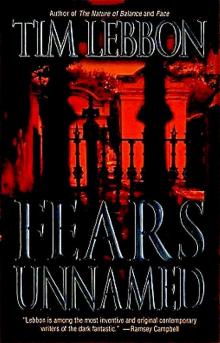 Tim Lebbon - Fears Unnamed
Tim Lebbon - Fears Unnamed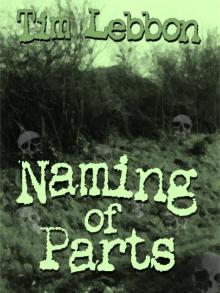 Naming of Parts
Naming of Parts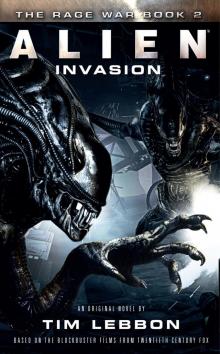 Alien--Invasion
Alien--Invasion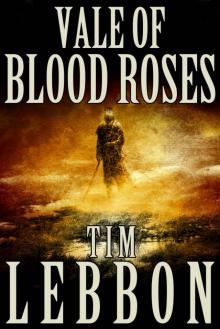 Vale of Blood Roses
Vale of Blood Roses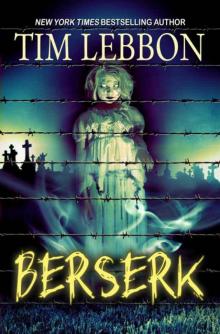 Berserk
Berserk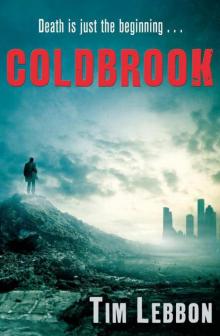 Coldbrook (Hammer)
Coldbrook (Hammer)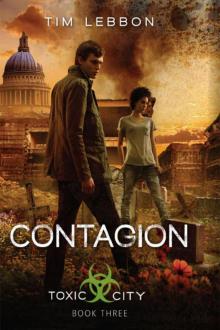 Contagion tc-3
Contagion tc-3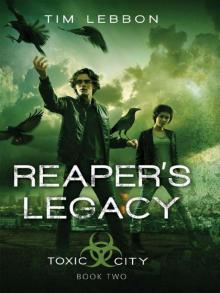 Reaper's Legacy: Book Two (Toxic City)
Reaper's Legacy: Book Two (Toxic City)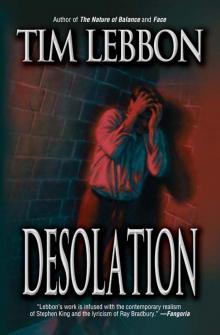 Desolation
Desolation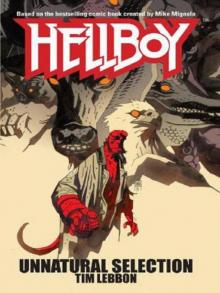 Unnatural Selection
Unnatural Selection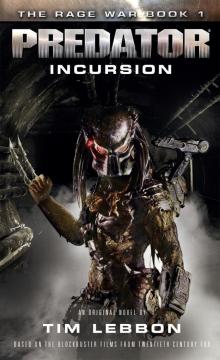 Predator - Incursion
Predator - Incursion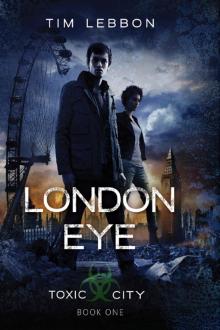 London Eye
London Eye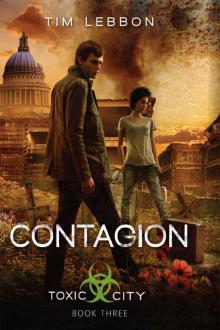 Contagion (Toxic City Book Three)
Contagion (Toxic City Book Three) The Silence
The Silence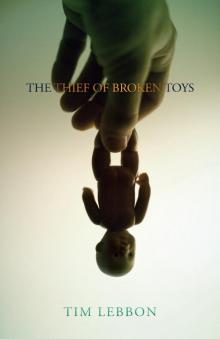 The Thief of Broken Toys
The Thief of Broken Toys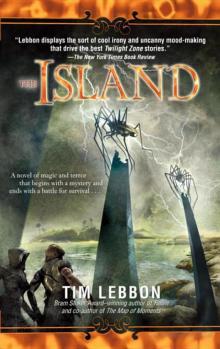 Tales of Noreela 04: The Island
Tales of Noreela 04: The Island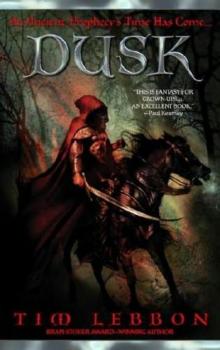 Dusk n-1
Dusk n-1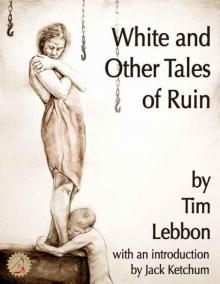 White and Other Tales of Ruin
White and Other Tales of Ruin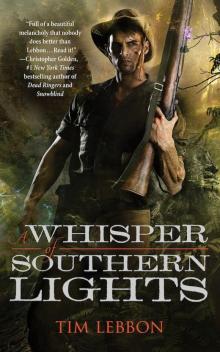 A Whisper of Southern Lights
A Whisper of Southern Lights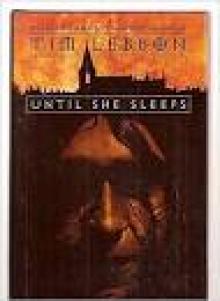 Until She Sleeps
Until She Sleeps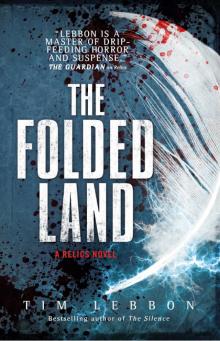 Relics--The Folded Land
Relics--The Folded Land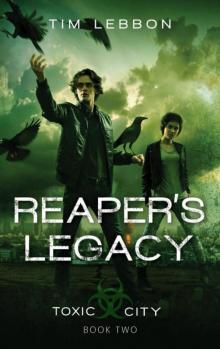 Reaper's Legacy tc-2
Reaper's Legacy tc-2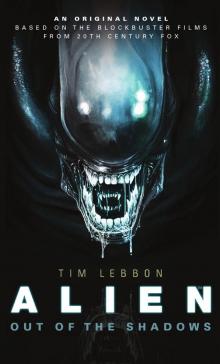 Alien: Out of the Shadows
Alien: Out of the Shadows Pieces of Hate
Pieces of Hate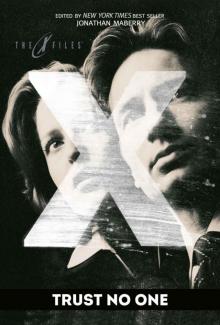 X-Files: Trust No One
X-Files: Trust No One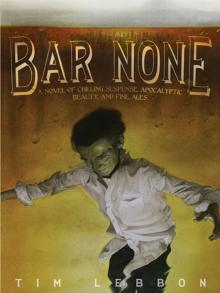 Bar None
Bar None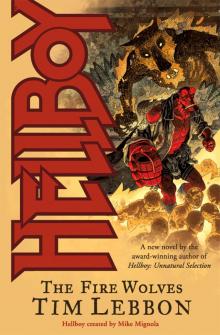 The Fire Wolves
The Fire Wolves